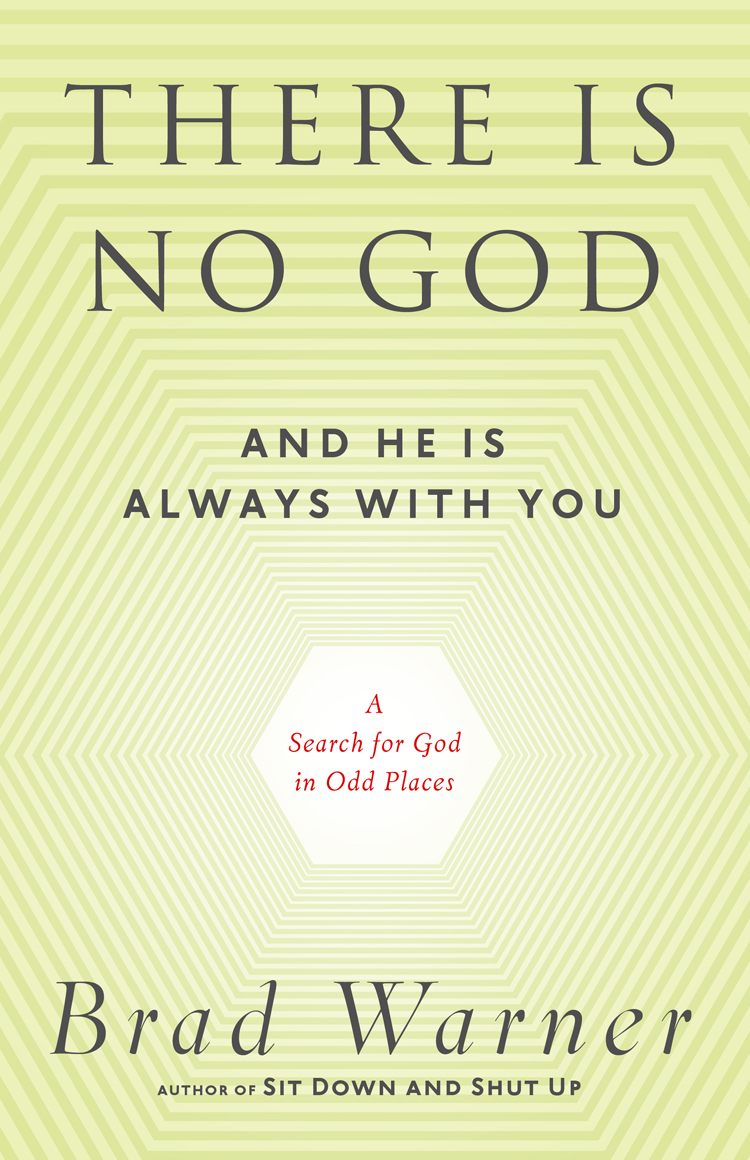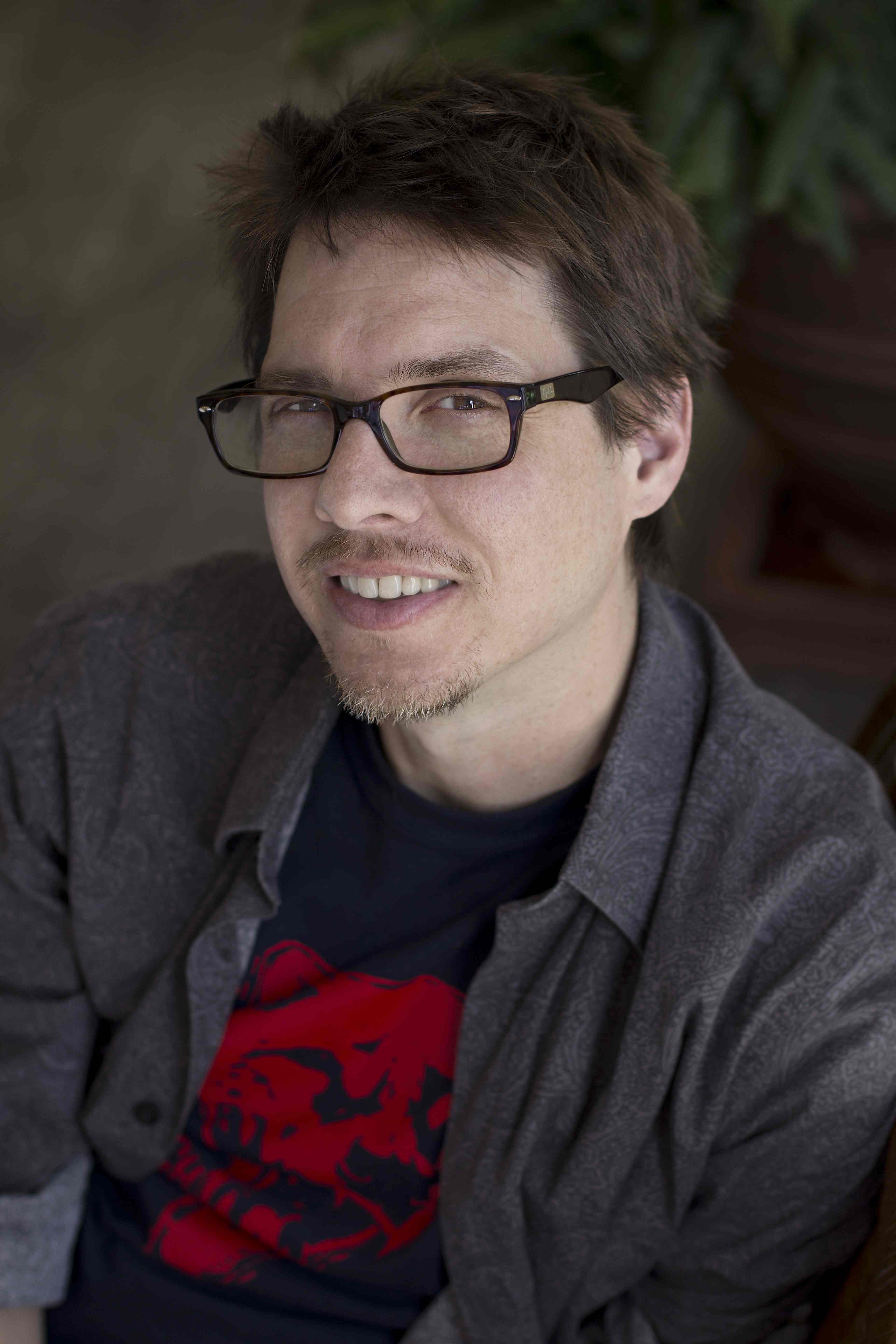Why did you write a book about God?
I got into Buddhist practice because I wanted to understand God. I didn’t grow up in a religious family so I had no indoctrination into beliefs about God. But in my teens I found that I really wanted to understand this idea of God. The religious people I encountered when I was growing up in rural Ohio seemed mostly just delusional and irrational. Science made sense and could be demonstrated to work, so I couldn’t reject it the way they did. And yet there seemed to be something valuable to this idea of God. I wanted to pursue it further. This book is the outgrowth of decades of personal inquiry into the question of whether or not there is a God. Not just inquiry through reading and thinking about the subject, but inquiry through many, many hours of silent meditation.
Isn’t Zen Buddhism a religion without a God?
Zen Buddhism offered me a way to approach God without religion, or at least without what we usually think of as religion. Zen doesn’t have any belief system you’re required to buy into. But it’s not atheism because atheism is also a belief system. Some Zen Buddhists believe in God and some do not. But I think the ultimate object of inquiry in Zen practice can be called God if we choose to call it God. Dogen Zenji, the founder of the order I belong to, preferred not to name it at all. He just called it, “it.”
Your book is subtitled “A Search for God in Odd Places.” Why?
I’ve traveled around the world several times in recent years, giving lectures and holding meditation retreats. This has been very educational. A lot of people all over the world are interested in Buddhist meditation these days. But every culture brings something different to the inquiry. In Israel I spoke to a group of Jewish psychologists interested in meditation while I stayed at the home of a Muslim man who worked for peace between the Palestinians and Jews. In Northern Ireland I saw how religion divides people in a similar way that it does in Israel. But people in those places still long for some kind of sense of God and spirituality. In Mexico I saw how the ancient Gods of pre-colonial days still live on in the guise of Catholic saints. It’s all been very instructive.
Your book references the New Testament and early Christian theologians almost as many times as it references Buddhist teachers. Why is that?
When I first started inquiring into the question of God, I tried the Christian Bible. But the Christians I met in Ohio were mostly conservative fundamentalists who hated science even as they used the tools of science like TV and later the Internet to spread their message. It was transparently hypocritical and very much driven by fear. Even so, I never lost the idea that the early Christians may have been onto something. I also find the story of Jesus deeply fascinating. I was a history major in university and studying Jesus in historical terms is really interesting. Who was this guy? Why did the movement he started diverge so radically from what he taught? I also feel that the types of meditation practiced by the early Christians were very similar to Zen. Some of the most Zen-like material in early Christianity actually predates similar ideas that were later developed in Chinese Zen Buddhism.
What do you think of the neo-Atheist movement championed by people like Richard Dawkins, Christopher Hitchens and Sam Harris?
It’s interesting. I’ve read some of their books. I find that I mostly agree with them. But the God that they’re spending so much energy denouncing isn’t the kind of God I believe in. I wonder how many people actually believe in that kind of anthropomorphic vengeful God anymore. Obviously some still do. But I think they’re a tiny minority. I feel like a lot of those writers are setting up very easy, strawman-like targets. What they’re saying doesn’t really address the kind of deep questions that I and a lot of other people have about God.
Have you come to any conclusions about God?
I’ve done Zen practice for nearly 30 years now, starting when I was quite young. In that time I’ve had some very profound moments in meditation that have revealed something of the nature of God to me. That’s not to say I have any great revelations about God that I want to bestow upon the ignorant masses. It’s not like that at all. I feel that God is available to all of us at any time, but that God isn’t what we imagine.
Why did you choose such a provocative title? Are you suggesting that God is separate from us or is there hidden meaning in the title?
The title comes from something the contemporary Zen teacher Joshu Sasaki once said to a student who held very strong beliefs about God. It neatly expresses the Zen view of God. On the one hand there is no God in the sense that everything you could ever imagine about God is always mistaken. But we don’t deny that there is an ultimate ground to all being and non-being. And this ground, which is the source of everything, is not just dead matter interacting at random. Yet the explanation that it behaves like dead matter acting at random also has merit. Zen is a philosophy that embraces contradiction. Logic forces us to choose one way of looking at things or another, but never two or more at the same time. Life isn’t like that. Life constantly has things two, three or a million contradictory ways all at the same time. The brain can’t handle that much data so it rejects what it can’t manipulate successfully. Life is not like that. Reality is not like that.
What are your qualifications for writing about God and Buddhism?
None really. I’m a Buddhist monk. But that doesn’t mean a lot. It means I meditate a whole lot and I’ve gone through a few initiation ceremonies, which qualify me to teach Zen and wear a certain color of robes. Big deal. I am a human being and I believe all human beings are equally qualified to inquire into the question of God and to reach conclusions, or at least provisional understandings, about God.
What audience are you hoping to attract?
I don’t really know. I hope this book will be read by people who are interested in the question of God. I hope it finds an audience outside the world of people who buy every book on the shelf with Zen in the title. I hope that it helps move the inquiry into God a little further. I feel like the current arguments between atheists and true believers are mostly very shallow and kind of useless. I'd like to get a little deeper into an issue that I think is really important.
Who do Buddhists pray to?
No one. Buddhists don’t really pray in the sense that the word “pray” has come to mean these days. We don’t believe we can ask God to do things for us. And yet I think most Buddhists feel a strong relationship to something that a lot of people call God, even if the Buddhists themselves tend to avoid that word. I’ve chose to frame my inquiry in terms of God, which is a very divisive and messy word that evokes a lot of strong emotions. I think we need to do this because there are some very important issues at stake. If you avoid the word God because it’s so difficult and dangerous, I think you’re avoiding a very serious topic and I think we really have to look into this.

